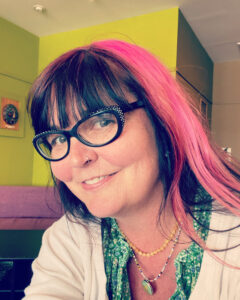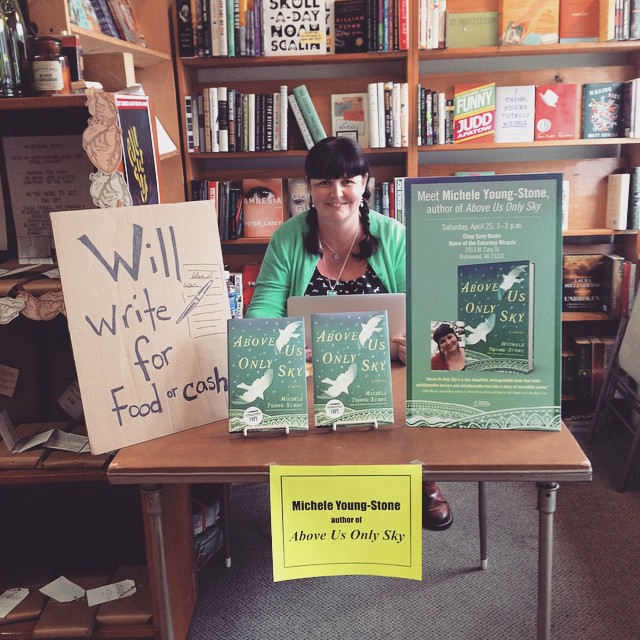I recently taught my second seminar on how to find the literary agent who’s right for you at The Muse in Norfolk, Virginia.
Just thinking about looking for a literary agent makes me feel sick to my stomach. I always called that part of trying to get published “the business part,” something us creative types loathe. I would sit down and mark eight to ten agents to query. At the time, 2004 to 2008, they all wanted snail mail queries, so I would send my letters out with their SASE and wait for the rejections to arrive, hoping that one of the agents would ask for the first chapter or the first fifty pages. Then, I’d be off to Kinkos to make copies, and off to the post office to mail them.
I queried every New York City agency accepting unsolicited manuscripts A-Z, not once, but twice! I had close to 1,000 rejections. (I managed to query the agencies twice because I had rewritten the novel.) I would get excited over handwritten, as opposed to form-letter, rejections. Even a signature would shoot me to the moon. “Wow! He took the time to sign his name and write, ‘Best of luck.'” I was up and I was down more times than I can remember.
I also had a lot of close calls: one agent called to ask me not to accept any other offers, she was so in love with the book, then emailed me a day later to say, “Never mind.” She didn’t like the end.
I had another agent say that she wanted the book, only to tell me six months later that she hadn’t been able to find an editor who would take it, but that her husband was a book doctor if I wanted to hire him.
One of the greatest lessons I learned is that you have to find the agent who is really passionate about your work, who feels invested in what you have to say, and THIS IS NO EASY FEAT. (Yep, I’m shouting. It’s fucking hard, near impossible.)
This individual has to know deep down in her bones that she can sell what you’ve written. That’s the only way you’re going to get published. Find someone who can’t imagine the world without your book in it. Yes, the work has to be that good.
If an agent wants to represent your book, she should have a game plan. She should know where she’s going to take it, and how she’s going to produce buzz about the book.
After so many rejections, I would take anyone I could get. I am very fortunate that my agent had a game plan. She told me that in order to represent my first novel, The Handbook for Lightning Strike Survivors, she would need me to rewrite it. She gave me specific feedback on what was missing. I went to work. She gave me two weeks. She said that as long as she could get it into editors’ hands before Thanksgiving, she could sell it, and she did. We had two competing offers on November 8, 2008. Pinch me! It was an incredible day: the highest of all the high/up days.
Of course, since it’s a book about lightning strike survivors, and I am one, the day wouldn’t have been complete without a terrible storm, lightning splitting the sky in two, the hair on my arms standing up, and a near-death experience. I was on vacation in Hatteras. I knew that I was going to get struck: it was just my luck. Fortunately, I survived.
Later that day, my agent said, “It’s a good thing you weren’t struck. Publishers won’t publish first-time authors posthumously.” She’s very funny!
To anyone who wants to publish traditionally, I say, Never give up. This means NEVER stop revising, never stop rethinking the structure, plot, characters, and momentum of what’s on the page. If you ever think that what you’ve written is perfect and deserves to be published, and there’s something wrong with the agents in the world, not you, not your book, because your friends like what you’ve written, well, you’re only fooling yourself. You’re delusional. Books are never “finished”. They’re never perfect. They are only set aside because the author can do no more at the time to make it any better. But, I guarantee, any author worth her salt will pick up a book she’s written months or years ago and find something to improve upon. We’re artists. We’ll see a new angle.
Be resilient. Persevere. Remember that the art, the gold, the manna, the life’s blood, all of it, is in the act itself. WRITE. Hell yes, I want to be published because I want the whole world to experience the world I’ve created, but that world isn’t any less “me”, it’s no less unique, it’s no less art, if it’s not published.
Go forth and be brave. You got this.
I’m speaking on “Balancing the Art and Business of Fiction Writing” Friday, May 15, 6 pm, at Christopher Newport University’s 39th Annual Writers Conference. The conference includes Agents, Fiction, Nonfiction, Music, Mystery, Poetry, all for adults and children: Virginia is for Writers.

